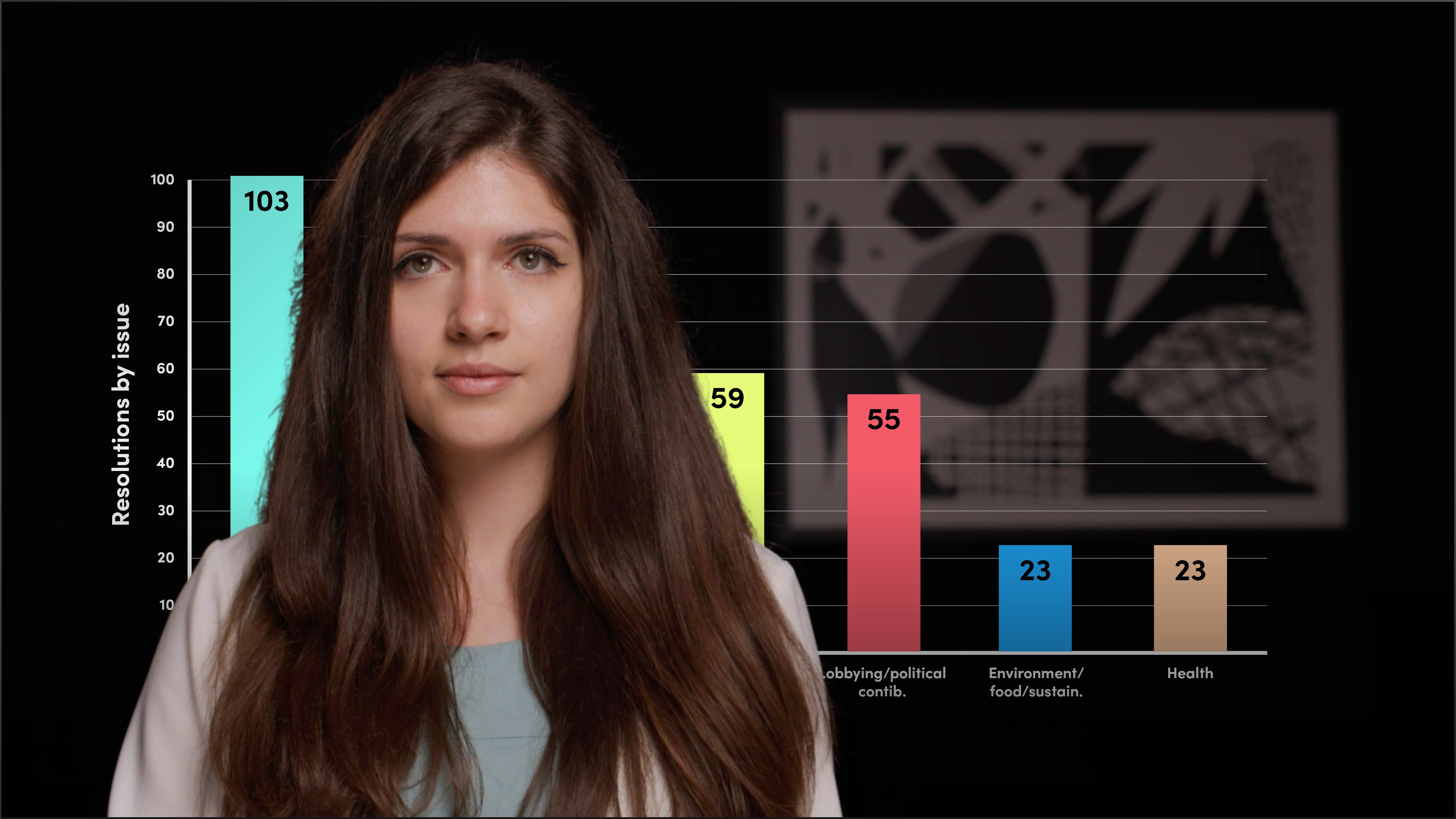
Stewardship Through Collective Voting

Denitsa Georgieva
Stewardship Specialist
In this video, Denitsa examines a case study that illustrates how stewardship has been effectively used by investors to create meaningful change at companies. She also looks at how effective stewardship has led to very recent changes in the investment industry, as well as the future trajectory of this area.
In this video, Denitsa examines a case study that illustrates how stewardship has been effectively used by investors to create meaningful change at companies. She also looks at how effective stewardship has led to very recent changes in the investment industry, as well as the future trajectory of this area.
Subscribe to watch
Access this and all of the content on our platform by signing up for a 7-day free trial.

Stewardship Through Collective Voting
9 mins 16 secs
Key learning objectives:
Understand how effective stewardship leads to change
Learn about the future trajectory of stewardship
Understand the social responsibility of shareholders
Overview:
Even if the topic at hand never actually comes up for a vote at the AGM, responsible stewardship can be effectively carried out through participation in the proxy voting process. The collective power of shareholders cannot be understated, change will only ever happen in a company if a large proportion of shareholders support it. There is a collective drive across the financial markets for the industry to be a leader in the drive to sustainability. Responsible stewardship has proven to be the most efficient way for shareholders to hold companies accountable for their actions on ESG issues, ultimately creating a better and more sustainable economy.
Subscribe to watch
Access this and all of the content on our platform by signing up for a 7-day free trial.
How can effective stewardship lead to change?
In most cases, a shareholder proposal to hold a company accountable for its actions on environmental, social, and governance issues receives support from the majority of shareholders present at the annual general meeting (AGM) of the company. While this is an ideal situation, it does not obligate the company to take such offers seriously.
In order to hold corporations accountable for their activities on many environmental, social, and governance issues and so foster a better and more sustainable economy, responsible stewardship has proven to be the most effective method for shareholders to do so.
How can stewardship serve to improve a company’s business practises via the proxy voting process?
In December 2020, Engine No.1, a very new and very small hedge fund, sent a letter to ExxonMobil, one of the world's largest oil and gas companies, saying: "It is time for shareholders to weigh in". The hedge fund owning just 0.02% of Exxon's shares put forward four independent Board candidates to challenge four existing Directors at Exxon. At the Annual General Meeting, three out of the four candidates put forward won seats on the board.
Both Engine No.1 and two asset managers (Blackrock and Vanguard) put stewardship into action by engaging meaningfully with the proxy voting process at Exxon; they submitted candidates and voted with their shares to bring about positive change.
What does the future of shareholder voting look like?
Given the success of Engine No. 1, there has been a massive increase in proxy voting in 2022 alone.
By mid 2022, the Interfaith Centre on Corporate Responsibility, or the ICCR, reported that 436 shareholder proposals had been filed at companies, whereas by mid 2021, this number was only at 244.
This trend has been largely influenced by a pivot within the asset management industry. In Larry Fink's 2021 letter to CEOs, in which the head of the world's largest asset management company appeals to the leaders of businesses around the world, he announced that the company would allow its institutional investor clients to engage with this process and vote.
Subscribe to watch
Access this and all of the content on our platform by signing up for a 7-day free trial.

Denitsa Georgieva
There are no available Videos from "Denitsa Georgieva"





























